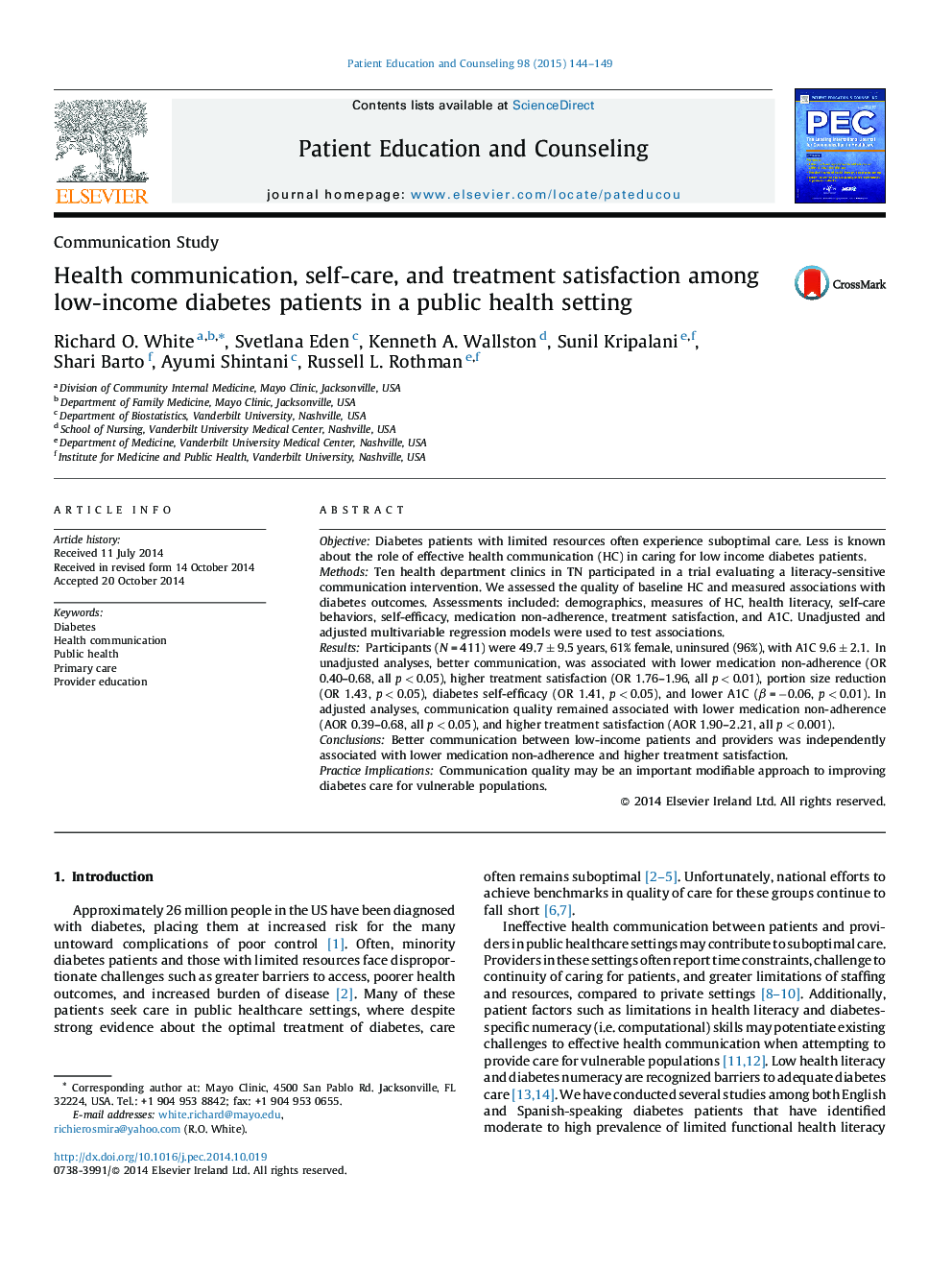| کد مقاله | کد نشریه | سال انتشار | مقاله انگلیسی | نسخه تمام متن |
|---|---|---|---|---|
| 6153689 | 1246048 | 2015 | 6 صفحه PDF | دانلود رایگان |
- Poor health communication (HC) may influence diabetes care for patients with limited resources.
- We examined the association of HC with select diabetes factors for patients in a safety-net system in TN.
- Predictors included self-reports of provider communication using validated measures.
- Better communication was associated with lower medication non-adherence and higher treatment satisfaction.
- Communication quality may be an important modifiable strategy for improving diabetes care for vulnerable populations.
ObjectiveDiabetes patients with limited resources often experience suboptimal care. Less is known about the role of effective health communication (HC) in caring for low income diabetes patients.MethodsTen health department clinics in TN participated in a trial evaluating a literacy-sensitive communication intervention. We assessed the quality of baseline HC and measured associations with diabetes outcomes. Assessments included: demographics, measures of HC, health literacy, self-care behaviors, self-efficacy, medication non-adherence, treatment satisfaction, and A1C. Unadjusted and adjusted multivariable regression models were used to test associations.ResultsParticipants (N = 411) were 49.7 ± 9.5 years, 61% female, uninsured (96%), with A1C 9.6 ± 2.1. In unadjusted analyses, better communication, was associated with lower medication non-adherence (OR 0.40-0.68, all p < 0.05), higher treatment satisfaction (OR 1.76-1.96, all p < 0.01), portion size reduction (OR 1.43, p < 0.05), diabetes self-efficacy (OR 1.41, p < 0.05), and lower A1C (β = â0.06, p < 0.01). In adjusted analyses, communication quality remained associated with lower medication non-adherence (AOR 0.39-0.68, all p < 0.05), and higher treatment satisfaction (AOR 1.90-2.21, all p < 0.001).ConclusionsBetter communication between low-income patients and providers was independently associated with lower medication non-adherence and higher treatment satisfaction.Practice ImplicationsCommunication quality may be an important modifiable approach to improving diabetes care for vulnerable populations.
Journal: Patient Education and Counseling - Volume 98, Issue 2, February 2015, Pages 144-149
